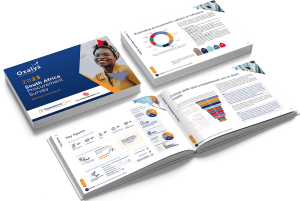How and when did procurement and supply become your passion and career choice?
I have not always considered procurement as a career path. I was initially inspired by scientific and technical jobs: I dreamed about becoming a chemist or a jet pilot. But my professional life developed differently. I started a commercial apprenticeship at a mid-size company based in Germany and one day several emergencies arose in the procurement department. I was asked to join the supply management team and that was the starting point of my successful career in the discipline that became a lifelong passion.
I have to admit that, before that moment, I always thought that procurement was about dealing with boring topics. I am happy that it turned out to be an exciting and fascinating journey with project and change management initiatives on both regional and global scales. It also extends to post-merger and acquisition integrations, functional turnarounds and, what I most appreciate, leading passionate teams of procurement professionals.
What is on your agenda today? What takes up most of your time currently?
Well, we all know that what got us to today will not get us into the future. This is the motto that continuously reminds me of one key question: how does a business stay relevant as a function in three or five years’ time from now? What should we be focusing on? With this in mind, we have launched the Procurement 2022 agenda under the theme of being bold and relevant to our business stakeholders.
We aim to continue being deeply integrated into business, to have a clear understanding of business priorities and to continuously play the role of strategic business advisor, helping the business to achieve its priorities and solve problems in all kinds of areas.
How does digital shape our agenda? How do we generate more insights into the wealth of data that we have? How do we partner with the best capabilities in the market and completely move away from tactical relationships to strategic ones? These are the burning questions.
What makes you proud of your team? What is the success story you would like to share with the international procurement community?
We’ve got the right skills and capabilities to become true business partners and to achieve optimal agility of the team. Over the last three years, we consolidated procurement as part of Novartis Business Services, leveraging skills as well as the scale of the organisation to build global category organisations and strategic centres in five locations all over the world.
One of the biggest success stories to share is that we do have a seat at the table on all functional and/or finance leadership teams and we have the ability to run programmes across the corporation that are sponsored by the executive committee and even have their direct involvement.
And, we have created a culture where team members are not afraid, but rather highly encouraged, to say ‘no’ to things and tasks that are not important for the business or our internal customers.
How do you see the CPO role evolving in the next three to five years?
I think that CPOs should focus on three major areas. Firstly, they should drive a mindset of business partnering by sitting on functional leadership teams, understanding business imperatives and acting as strategic advisors.
The second aspect is making sure that an organisation works with the right external partners, those that are capable of not just bringing productivity to and through the business, but also capable of activating top-line growth through innovation. Such relationships should have strategic plans that are co-owned and incentives in place to maximise the results from the relationships.
As I have mentioned earlier, the third focus should be on partnering with the best external capabilities in areas where we may not be the experts.
But there is also something unique coming: CPOs are perfectly positioned to design and implement new operating models that would open new channels of innovation by collaborating with start-ups. Leveraging agile mindsets, helping companies to develop a healthy risk appetite and steering them towards controlled pilot projects might completely reshape the ecosystem and operating model in the long run.
Where to should procurement report in organisations to enable sustainable performance?
I have noticed that sometimes people are a bit too obsessed with this topic. The world has changed, requiring us to adapt; it is no longer about reporting lines, but about direct participation in the decision-making process regarding budgets and spend, while being fully integrated into business structures. Most companies have become so complex and agile in their organisations that reporting lines do not really matter and thus good managers have to find their way through complex matrix worlds.
After centralised category management, could client partnerships move procurement back towards functions and business units?
Well, hopefully we are fully integrated into the functions with strong business partnering. How we are organised and operating behind the business partnering organisation is not relevant for the functions that we support, as long as we support their business priorities.
The operating model of a centralised procurement function should be maintained, however, the performance management approach has to change. Functional objectives and procurement business partner objectives should directly mirror those of the business. And that works!
In what ways do you see procurement’s effectiveness being improved by digitalisation (AI, robotics, analytics, connectivity, etc.)?
I think we are still early on in the process of understanding which benefits digital will bring. One of the areas that I expect most benefits will come from is smart analytics that will help generate insights into our spend data to drive best business decisions.
This will also make the buying process much more intuitive for the end-users, where machines will find the right products you need to buy without too much effort from your side. Other areas, like end-to-end order-to-pay processes, can probably be automated to a large degree as we design a true end-process and single ownership.
I also believe that we could benefit in the area of third-party risk management, as digitalisation should allow us to automate a lot and benefit from being connected to the right data insights and create better visibility about what is happening in the outside world.
What would be your one piece of advice to future procurement leaders?
Focus only on what is most relevant and important to the business. The best performance feedback you can get is when your stakeholders can say that you have delivered a contribution to their business success!
Regarding everything else, think if you need to do it at all or find somebody who does it better. In the end, everything is up to us and we own our destiny of becoming a valuable business partner.
The above CPO interview is part of a series of management-level insights from Swiss-based global procurement leaders. The Chartered Institute of Procurement and Supply (CIPS) Switzerland uniquely engages with them and offers community best-practice events, workshops and networking opportunities.



























